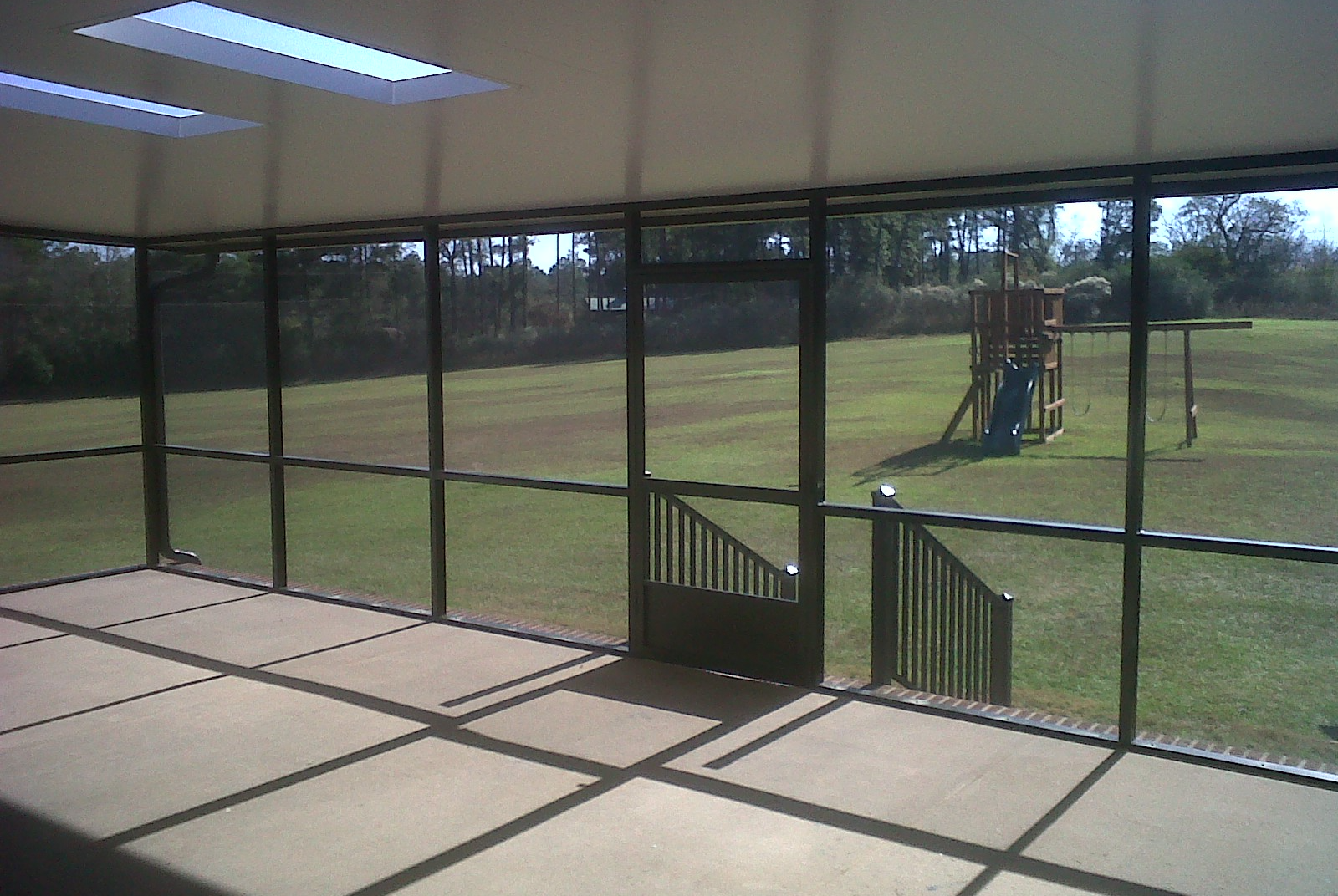Living in a home with limited space can be quite challenging, especially when it comes to my patio. It feels suffocated like it's begging for more space to breathe. And to make matters worse, privacy can be invaded, affecting the need for peace. That's why many homeowners consider investing in a patio screen enclosure. A solution that would create a private retreat, shielding your loved ones from dirt, dust and bugs and allowing you to enjoy the outdoors.
The options are vast for materials of screen rooms. Indeed, the selection process for patio enclosures can be overwhelming. Deciding on the best product and material is crucial. Whether you go for glass or screens? Aluminum or vinyl? Each choice comes with its pros and cons, making you confused about durability, aesthetics, and functionality. Let’s make things a bit easier for you, let us explore the best material for creating a patio enclosure.

The best material to create custom screen rooms
Aluminum and fiberglass screen patios
Aluminum is a popular choice for patio enclosures due to countless reasons. When combined with the cost-effective benefits of fiberglass screens these patio rooms become the best in class. You might want to invest in aluminum patio enclosures when you need the benefits of
- Exceptional durability
- Low maintenance needs
- Versatility
- Rust and corrosion resistance
- Excellent visibility
- Ventilation
- Pest control
- Privacy
Extruded aluminum custom screen rooms are best for areas where salt or moisture in the air can damage the screens quickly. Thanks to innovation and technology, now there are customizable aluminum enclosures. For instance, Structall screen rooms come in multiple color choices for the aluminum frame and choice of mesh sizes for the desired benefits of privacy, ventilation and heat control. For the added benefit of functionality, screen patios are also available with the retractable feature.
Vinyl patio enclosures
Vinyl is another durable and low-maintenance material option that offers protection against moisture, rot, and pests. Vinyl enclosures come in a variety of styles though customization is limited as compared to aluminum patio screen rooms. Secondly, vinyl is a cost-effective option but keep in mind vinyl is prone to cracking and warping over time.
Wood
If you are more inclined towards the traditional and natural aesthetic, then wood is a classic choice. Wood enclosures can be constructed to offer warmth and elegance. Depending on the level of customization, wooden patio enclosures can blend seamlessly with outdoor surroundings. However, wood is a natural material and requires regular maintenance. If you are not up for staining or painting, moisture protection, routine damage or decay inspection, then reconsider your choice and go with something durable like aluminum.
Glass
Tempered glass enclosures provide a sleek and modern look, they are also popular for providing uninterrupted views and ample natural light. Although glass provides year round protection against weather elements. They require regular cleaning and are an expensive choice. Moreover, the level of airflow and heat control provided by fiber mesh cannot be achieved from glass enclosures. The higher upfront cost often makes glass the least favorite option for homeowners.
Which one is the best patio screen room material?
After evaluating the unique characteristics of each material, it can be said that the pros of aluminum are definitely the underlying reason behind its immense popularity. If you need a low-maintenance, cost-effective and hassle-free option for patio screens, go for extruded aluminum.
Bottom line
Choosing the right material for your patio enclosure depends on your specific needs, budget, and aesthetic preferences. Consider your priorities, and make an informed decision to create the perfect patio screen enclosure. You can also get a quote from Bluebonnet Patio Covers for Structall screen rooms. The premium roofing company can enhance your outdoor living experience with extruded aluminum structures and fiberglass screens for patio enclosures.




.jpg)
Comments